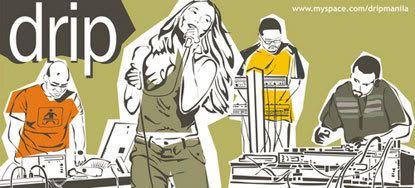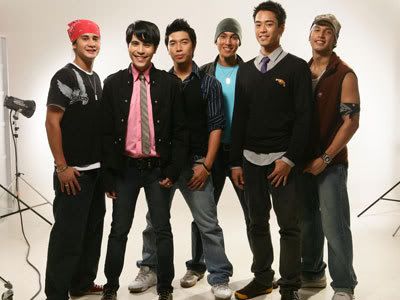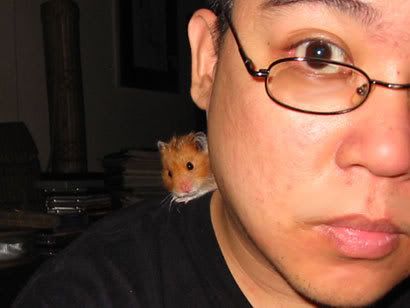
Hello from me and Burroughs! Posted some pix on the Hamsters LJ Community. For more hamster hijinks click here. (Those who are rodent-averse need not apply.)
A music appreciation blog of sorts. Books, films, comics, hamsters and other related subjects may also be discussed.




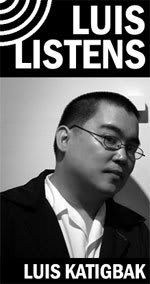 There’s this word I learned from Q magazine—“chuffed.” I gather that it means delighted, glad, pleased as punch. If so, then I am chuffed to inform alla youse that today marks the first installment of my brand new column in the Manila Bulletin: Luis Listens. Check it out, it’s on page G-4, in the spiffy i section. Here’s the blurb at the bottom: “LUIS LISTENS is a new column devoted to music. Luis was a staffer on PULP and MTV Ink, the first Editor-in-Chief of the online music magazine Pulse.ph, and is the co-founder of BURN Magazine.”
There’s this word I learned from Q magazine—“chuffed.” I gather that it means delighted, glad, pleased as punch. If so, then I am chuffed to inform alla youse that today marks the first installment of my brand new column in the Manila Bulletin: Luis Listens. Check it out, it’s on page G-4, in the spiffy i section. Here’s the blurb at the bottom: “LUIS LISTENS is a new column devoted to music. Luis was a staffer on PULP and MTV Ink, the first Editor-in-Chief of the online music magazine Pulse.ph, and is the co-founder of BURN Magazine.” 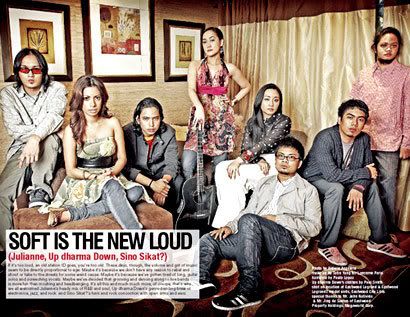

 Went to the NU107 Rock Awards last night with Yvette. Wrote about it for Pulse.ph. Who won? Who lost? Who made me go "WTF"? Results and reactions here!An excerpt: "2007 marked the 20th year of the radio station’s existence, and the 14th installment of the awards show. We missed the pre-show, which featured a performance by Marcus Highway, but we got there just in time for the show proper, and to have our senses assaulted by a sex-themed intro video starring Asia Agcaoili, Ramon Bautista, and various cylindrical fruits and vegetables. Our main hosts for the evening were Asia, who, true to form, seemed to be wearing less and less clothing as the evening progressed (although who can blame her, considering how sweltery it got in the hall), and Zach Lucero, who looked rather dapper in a red sweatshirt that in the wrong context would have gotten him confused with a doomed Star Trek extra."
Went to the NU107 Rock Awards last night with Yvette. Wrote about it for Pulse.ph. Who won? Who lost? Who made me go "WTF"? Results and reactions here!An excerpt: "2007 marked the 20th year of the radio station’s existence, and the 14th installment of the awards show. We missed the pre-show, which featured a performance by Marcus Highway, but we got there just in time for the show proper, and to have our senses assaulted by a sex-themed intro video starring Asia Agcaoili, Ramon Bautista, and various cylindrical fruits and vegetables. Our main hosts for the evening were Asia, who, true to form, seemed to be wearing less and less clothing as the evening progressed (although who can blame her, considering how sweltery it got in the hall), and Zach Lucero, who looked rather dapper in a red sweatshirt that in the wrong context would have gotten him confused with a doomed Star Trek extra."
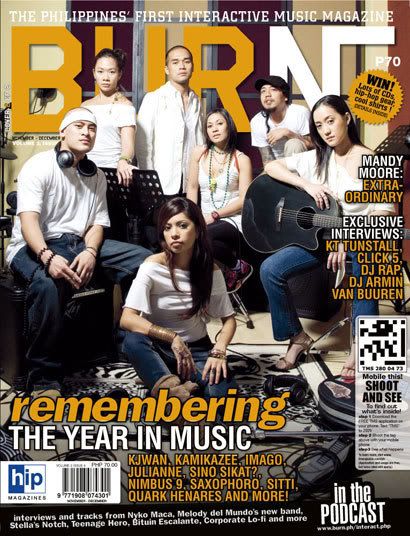

 You may have seen this new magazine on the stands: it's massive, colorful and attention-grabbing, and it's called Imagine. Congratulations to Yonina Chan and company on the first issue! :)
You may have seen this new magazine on the stands: it's massive, colorful and attention-grabbing, and it's called Imagine. Congratulations to Yonina Chan and company on the first issue! :)“I'm in the process of developing two stories,” Arnold tells us. The first is Martial Law Babies, “a coming-of-age story about a group of 30-somethings. We follow the lives of the characters, from their childhood memories to a present-day setting. It's a very personal story, and it came to me during one of those conversations with college friends over coffee. I also wanted to tackle some issues like where have our peers gone, what did they become? Why are we losing more and more talented people to first world countries? What role do we play in society? And aren't the younger generations getting better breaks in terms of work since they're adept in technology and from our perspective, more pampered?So I guess in a way another take on the title is that of us being trapped, we're under Martial Law so to speak. It's nearing completion, so hopefully we’ll get to see it in printed form sometime soon.”
The second project in the works is “another fantasy story, a different take on Filipino myths. The story is geared towards a younger audience, which I find to be a challenge since it's very new to me. In a nutshell, there is a worldwide organizing body of magic and myth holding friendly competitions for all creatures, gods, folklore beings and characters. Imagine an Olympics for the world of magic. Our delegates are a hodgepodge of troubled characters trying to band together as one team-a problematic tikbalang, a rebellious kapre, and several others being led by the team captain, a mambabarang who tends to be misguided in her decision making.”
 Man, I can't believe November's almost over! Been fairly busy on the freelancing front lately. I wrote the cover story for the November issue of the recently-launched Homestyle magazine. ("Redefining the Filipino home," goes the tagline.) If you're the kind of person who loves poring over magazines like Dwell and Vogue Living, and daydreaming about interiors and unusual designs, you should check it out. Much to my relief, my architect cousin Miguel, who is a partner in an Ortigas-based firm and whose taste I trust, has expressed his approval of Homestyle. (And he's very picky about his magazines.) Here's an excerpt from the feature:
Man, I can't believe November's almost over! Been fairly busy on the freelancing front lately. I wrote the cover story for the November issue of the recently-launched Homestyle magazine. ("Redefining the Filipino home," goes the tagline.) If you're the kind of person who loves poring over magazines like Dwell and Vogue Living, and daydreaming about interiors and unusual designs, you should check it out. Much to my relief, my architect cousin Miguel, who is a partner in an Ortigas-based firm and whose taste I trust, has expressed his approval of Homestyle. (And he's very picky about his magazines.) Here's an excerpt from the feature:"Like his home, Mikko Sison seems fairly normal at first. When I meet him, he is wearing a smart pair of glasses, a neat white shirt, pants with a subtle checkered pattern, dark brown suede shoes and an easy smile: the overall impression is that of a friendly, casually stylish intellectual. He’s pleasant and a little upscale, just like the brick-and-concrete façade of the two-story row house he is renting in Ecology Village, Makati City. And just like its inhabitant, the house may look perfectly respectable on the outside, but it harbors strangeness within."
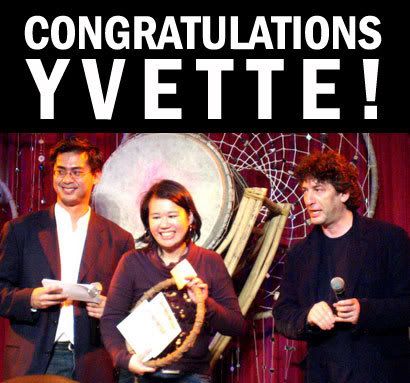
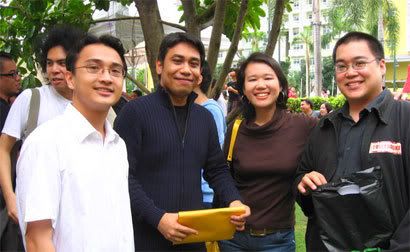
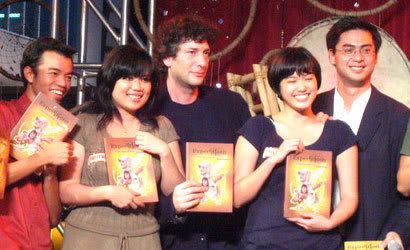
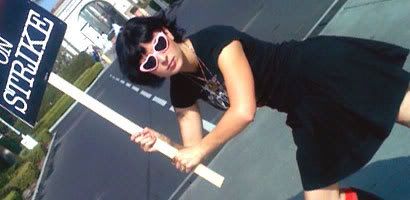
When Jason Reitman, who'd made a name for himself with 2006's Thank You for Smoking, read the script for Juno, he scrapped plans to direct his own project to work with Cody instead. ''When I think of the response to Diablo and her screenplay,'' he says, ''the only person I can equate it to in recent history is Tarantino, that kind of overwhelming excitement about a fresh new voice.'' But the movie would have imploded fast without the right actress in the title role. Enter the impressive Hard Candy actress Ellen Page, who, Cody believes, beautifully embodies her wry, tough-talking, secretly tender main character. ''It would have been really heartbreaking to meet Ellen if she was like, 'Oh, hey, wassup?' while talking on a rhinestone-encrusted cell phone,'' says Cody. ''But she's so cool, she scares the s--- out of me. She is Juno.''
"I'm f---ing sick of actors!" declares Cody, stabbing the lime in her third vodka soda. "They look airbrushed in reality. I swear Jennifer Garner has to be bathing in the blood of virgins because she has the most beautiful skin that I've ever seen on a human being. The boys too! I met Brandon Routh from Superman last year. He looks like a special effect. He's too beautiful to live. And actors are all tiny people. Why is that? I'm a hulk compared to them! If you look at pictures of me with actors, I look like I ate them all."




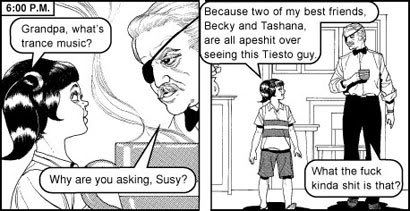

 Yvette and I are very happy indeed to be featured in the October 2007 issue of Preview magazine, on this year's "Creative 'It' List." :) According to the feature's intro, the list "rounds up a list of 26 bona fide talents that have earned distinction in their respective fields, and helped set the standards for artistic excellence." Woo hoo! We're especially delighted to be in the company of many people we genuinely admire, such as dynamic duo Marcushiro and Bru (a.k.a. Electrolychee), musical genius Malek Lopez, director Marie Jamora, production outfit Furball, singer Sitti, and some long-haired filmmaker named Kidlat de Guia, among many others. Thanks to Preview and to everyone involved!
Yvette and I are very happy indeed to be featured in the October 2007 issue of Preview magazine, on this year's "Creative 'It' List." :) According to the feature's intro, the list "rounds up a list of 26 bona fide talents that have earned distinction in their respective fields, and helped set the standards for artistic excellence." Woo hoo! We're especially delighted to be in the company of many people we genuinely admire, such as dynamic duo Marcushiro and Bru (a.k.a. Electrolychee), musical genius Malek Lopez, director Marie Jamora, production outfit Furball, singer Sitti, and some long-haired filmmaker named Kidlat de Guia, among many others. Thanks to Preview and to everyone involved!
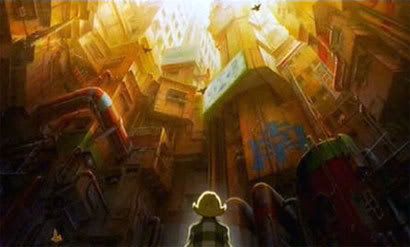
I had a really interesting meeting a couple of years ago with some of the [chief information officers] of Danish ministries. We sat down to talk about data interoperability and document retention. Document retention's a really thorny one, because hard drives are cheap, and governments don't really understand why they shouldn't just save everything. Who knows when it will be useful? I started to talk to them about this, and a gentleman put his hand up and said you know, you may need to talk to people in other countries about this, but you don't need to talk to the Danes about this.
Because after the Nazis occupied Copenhagen, they went down to the police station and got from the files all the addresses of the people they wanted to round up and stick in boxcars, and they took them away. We don't retain anything here. As soon as we're done with it, we throw it away because we understand that you can't always predict how information will be used, and the only way to ensure it's not misused is to get rid of it when you're done with it.
I think it's important to note here that what makes Google Google, what makes them such a good target for this stuff, is that they make the best search product on the market. They are so important to all of our lives that it's vital that we start thinking about what they mean and how they work, and what it could mean to have that much power concentrated into just a few hands. And what will happen down the road if the company's culture changes.



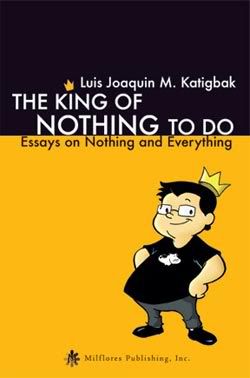 So it turns out that I'm a finalist for this year's National Book Awards, for The King of Nothing to Do. Thanks to the Manila Critics Circle for the honor! I'm not going to pretend cool indifference; I'm all jazzed up about this. The first time I was nominated was in 2000, for Happy Endings -- I didn't win that year, but considering I was up against Eric Gamalinda, Jun Cruz Reyes and Sarge Lacuesta, among others, I can't feel too bad about it. Of course, this year, I'm up against Butch Dalisay, Rene Villanueva, etc. What the hell. I'm still hoping I win.
So it turns out that I'm a finalist for this year's National Book Awards, for The King of Nothing to Do. Thanks to the Manila Critics Circle for the honor! I'm not going to pretend cool indifference; I'm all jazzed up about this. The first time I was nominated was in 2000, for Happy Endings -- I didn't win that year, but considering I was up against Eric Gamalinda, Jun Cruz Reyes and Sarge Lacuesta, among others, I can't feel too bad about it. Of course, this year, I'm up against Butch Dalisay, Rene Villanueva, etc. What the hell. I'm still hoping I win. 

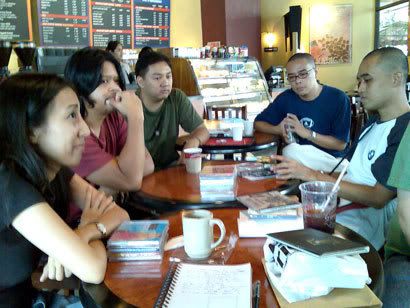


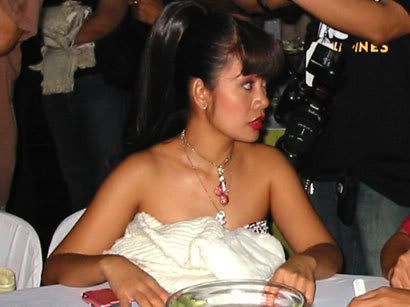




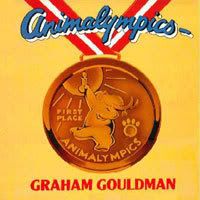 This is fun: Blender features "Our Favorite Musicians' Favorite Bad Albums"!
This is fun: Blender features "Our Favorite Musicians' Favorite Bad Albums"! Guess what I got in the mail today? Those of you who read, or used to read, British music magazines may recognize the logo on the right. Yes, I got the July issue of Q magazine, sent straight from London. Thank you thank you thank you, Indira! :D Yay!
Guess what I got in the mail today? Those of you who read, or used to read, British music magazines may recognize the logo on the right. Yes, I got the July issue of Q magazine, sent straight from London. Thank you thank you thank you, Indira! :D Yay!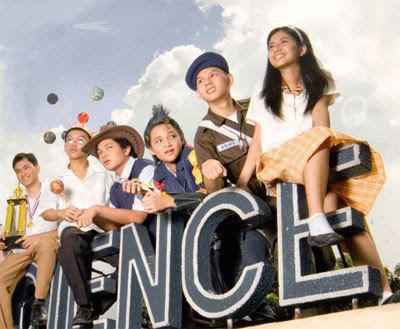
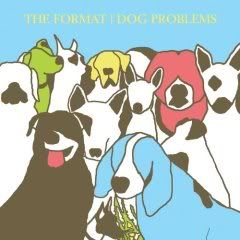 You can get Dog Problems, the second album by The Format, for free! (Yeah, so what? you might say. I can get all sorts of albums for free through the internets. The difference is, this particular download is officially sanctioned and will not send you to jail or hell.)
You can get Dog Problems, the second album by The Format, for free! (Yeah, so what? you might say. I can get all sorts of albums for free through the internets. The difference is, this particular download is officially sanctioned and will not send you to jail or hell.)

